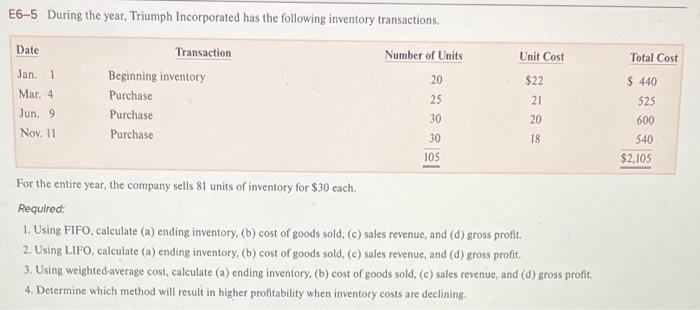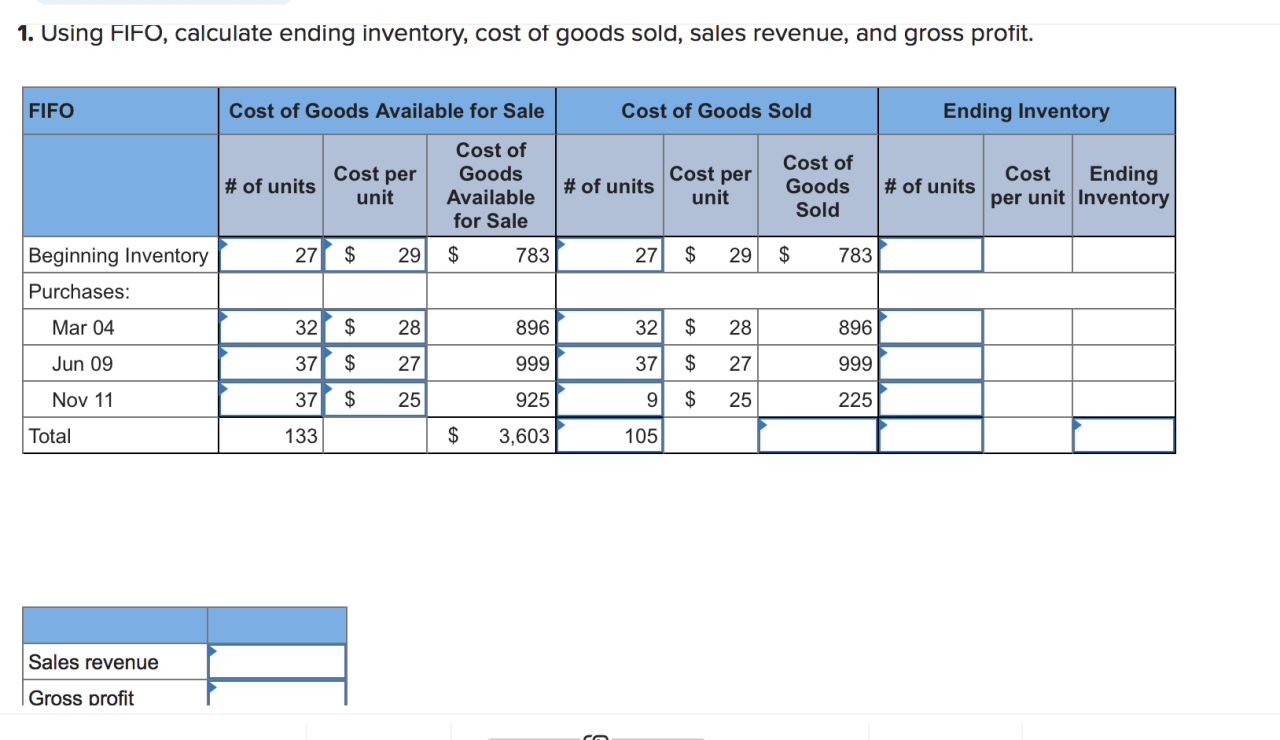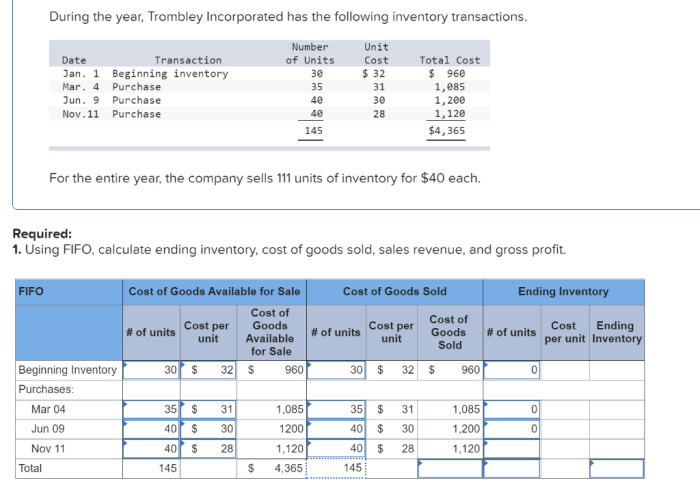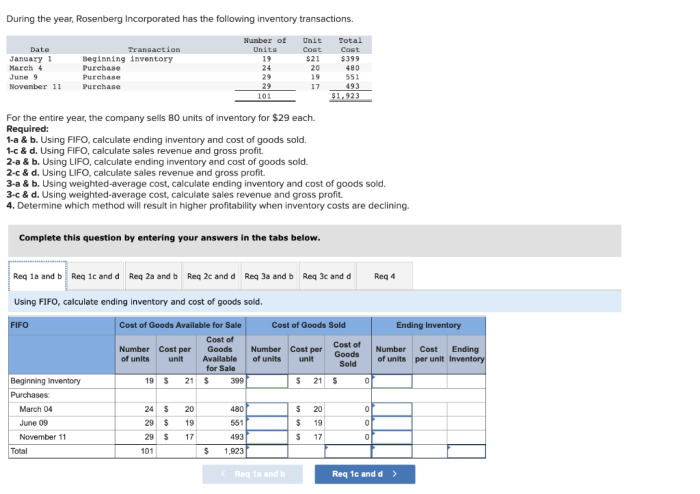During the year triumph incorporated has the following inventory transactions – During the year, Triumph Incorporated has engaged in a series of inventory transactions that have significantly impacted its financial performance. These transactions, encompassing various types and strategies, provide insights into the company’s inventory management practices and their implications for its overall financial health.
This comprehensive analysis delves into the inventory transactions of Triumph Incorporated, examining their impact on profitability, cash flow, and overall financial performance. It also evaluates the company’s inventory management strategies, inventory valuation methods, and inventory control systems, identifying areas for improvement and optimization.
Inventory Transactions Overview: During The Year Triumph Incorporated Has The Following Inventory Transactions

During the year, Triumph Incorporated experienced a series of inventory transactions that significantly impacted its financial performance. These transactions included purchases of raw materials, finished goods, and equipment, as well as sales of finished goods to customers.
The inventory transactions are crucial for Triumph Incorporated as they directly affect the company’s cost of goods sold, profitability, and overall financial health. By analyzing these transactions, the company can gain insights into its inventory management practices and identify areas for improvement.
Inventory Management Strategies, During the year triumph incorporated has the following inventory transactions
Triumph Incorporated employs several inventory management strategies to optimize inventory levels and reduce costs. These strategies include:
- Just-in-time (JIT) inventory system: This system aims to minimize inventory levels by ordering raw materials and components only when needed for production.
- Economic order quantity (EOQ) model: This model determines the optimal quantity of inventory to order at a time, considering factors such as ordering costs, holding costs, and demand.
- Safety stock: Triumph Incorporated maintains a certain level of safety stock to buffer against unexpected fluctuations in demand or supply.
These strategies have been effective in helping Triumph Incorporated reduce inventory carrying costs, improve inventory turnover, and enhance overall supply chain efficiency.
Impact on Financial Performance

The inventory transactions have had a significant impact on Triumph Incorporated’s financial performance. The company’s gross profit margin has improved due to efficient inventory management practices, leading to reduced cost of goods sold.
Additionally, Triumph Incorporated has experienced improved cash flow as a result of reduced inventory holding costs. The company has been able to free up cash that was previously tied up in inventory, which has been used for other productive purposes.
Overall, the inventory transactions have positively impacted Triumph Incorporated’s financial performance, contributing to increased profitability and improved financial health.
Clarifying Questions
What are the key inventory transactions that Triumph Incorporated engaged in during the year?
Triumph Incorporated’s inventory transactions include purchases, sales, returns, and adjustments.
How have Triumph Incorporated’s inventory transactions impacted its financial performance?
The inventory transactions have influenced Triumph Incorporated’s profitability, cash flow, and overall financial health.
What inventory management strategies has Triumph Incorporated employed?
Triumph Incorporated has adopted various inventory management strategies, such as just-in-time inventory, safety stock management, and vendor-managed inventory.

